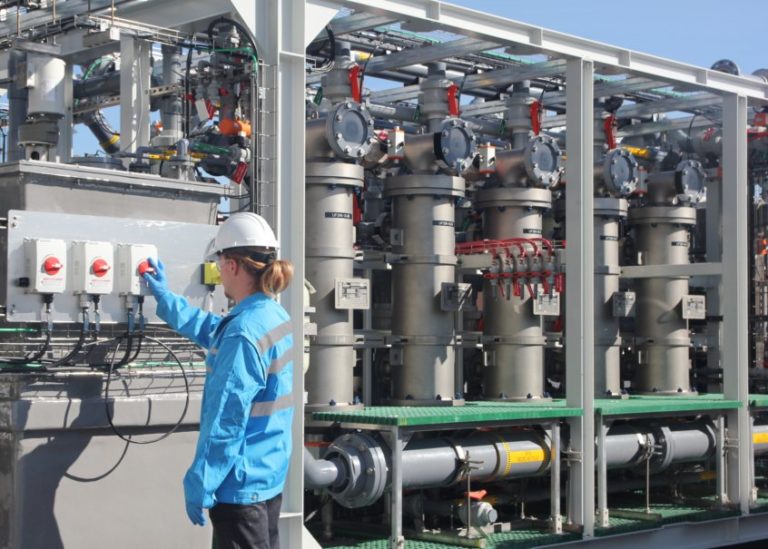
XtremeUF Ceramic Ultrafiltration
XtremeUF ceramic ultrafiltration removes oils, grease, precipitated by-products, particulate, microbes, and suspended solids.
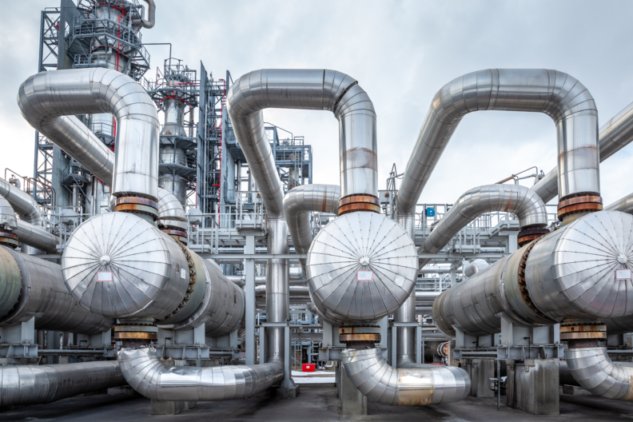
Saltworks » Applications » Petrochemical Industry Wastewater Treatment
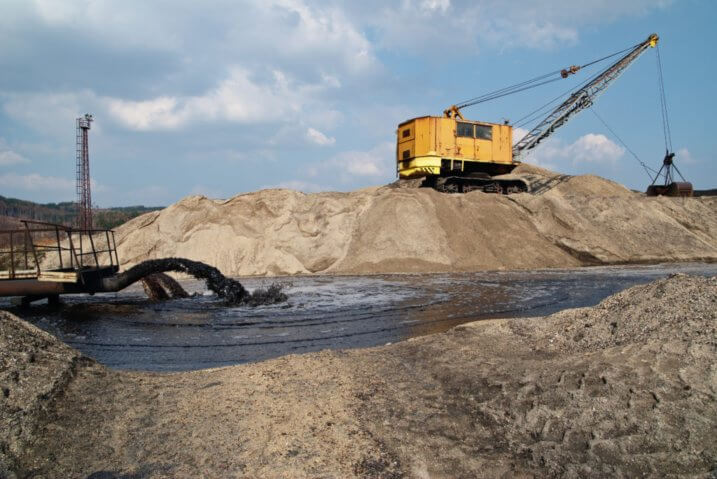

Saltworks’ brine management solutions can produce clean water from reverse osmosis brines, ion exchange regeneration wastes, and other concentrated saline waters. Our experts can help you to understand your brine minimization options, and the costs involved in taking each incremental step.
For membrane systems, we can maximize recovery from various brines and wastewaters with our ScaleSense real-time ion-specific sensors or our XtremeRO brine concentrator.
After membrane system recovery has been optimized, our thermal desalination solutions from the SaltMaker family of modular, fully packaged industrial evaporator-crystallizers can help you to achieve minimal (MLD) or zero liquid discharge (ZLD). Refineries also often have low grade heat sources, which can lower the cost of our wasteheat-driven SaltMaker options.
Many crude oils contain chlorides, which must be washed out prior to refining into its valued byproducts. Desalters are a common unit operation wherein crude oil is washed with low salinity water, moving the chlorides from the crude to the water.
Traditionally this wastewater must be blown-down (released somewhere) and replaced with freshwater. It is now possible to selectively remove chlorides from the wastewater and recycle it back to the desalter. Hydrocarbon byproducts can be left in the wastewater as they do not hinder the process. This avoids complex processing steps and enables higher recovery.
FlexEDR Selective chloride removal systems act like a kidney in your wastewater circuit: pulling chlorides (and its counter cation) from a solution.
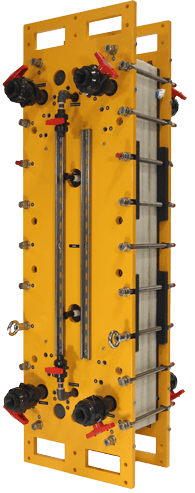
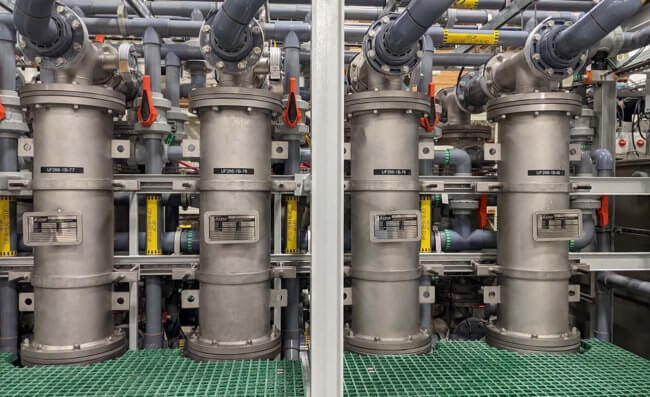
Saltworks’ XtremeUF ultrafiltration system uses robust, industry-standard ceramic membranes to remove particles, oils, and grease >0.01 µm. XtremeUF is packaged in a well-engineered and intelligently automated skid that keeps membranes clean and performing as it operates.
XtremeUF can treat highly impaired waters where polymeric ultrafiltration cannot cope, or where DAF, flocculation, clarification systems are too large or present air emission risks. XtremeUF can offer:
Depending on the application—and with consideration of the above four points—Saltworks may recommend the use of traditional processes, or XtremeUF. We can take a look at your application and arm you with technical and economic information to make an informed assessment, or offer a pilot program to prove performance.
Heavy metals such as arsenic, nickel, and cobalt can be removed with our BrineRefine chemical precipitation and filtration solution. Production of amorphous solids from these processes requires a high rate of slurry thickening and pressing to ensure sound water recovery and economics.
The plant must react to process condition changes, remain clean (unplugged), online, and reliably extract solids. Our intelligently automated BrineRefine system achieves these goals, easing operator burden and lowering costs. BrineRefine can achieve 100% water recovery in heavy metal removal applications, generating a solid filter cake as the only waste product.
Contact us to learn more about our solutions for petrochemical industry wastewaters.
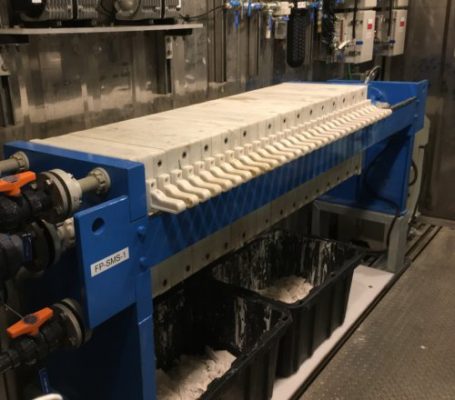

XtremeUF ceramic ultrafiltration removes oils, grease, precipitated by-products, particulate, microbes, and suspended solids.
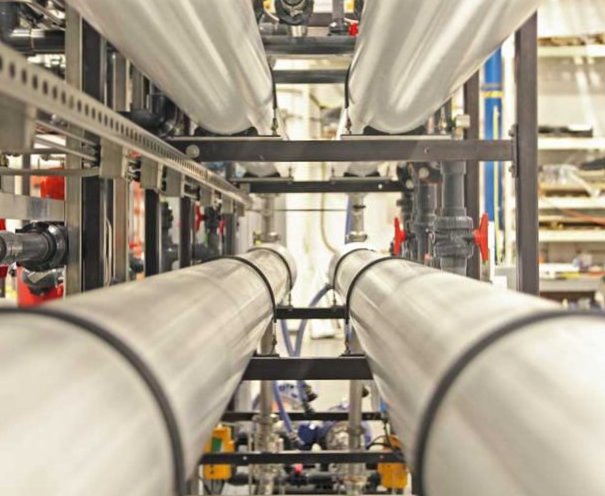
Our XtremeRO and OARO provide industry-leading recovery and reliablity. Concentrate brine, reduce discharge volumes, recover freshwater and more.
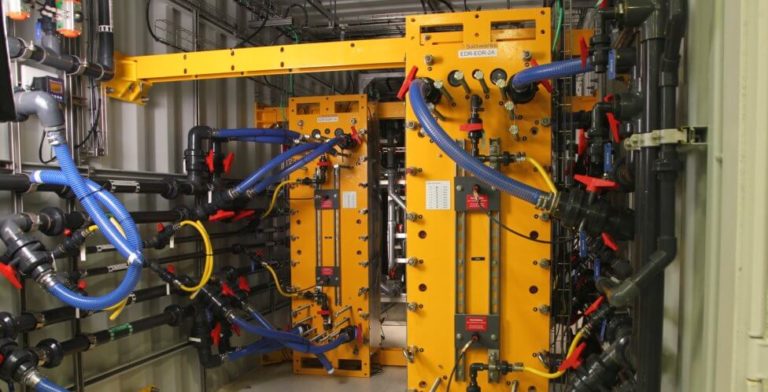
FlexEDR is a next-gen electrodialysis reversal (EDR) system for industrial wastewater desalination, solving scaling issues & boosting recovery.

We treat oil & gas produced waters to reduce waste volumes and disposal costs, minimize chemical usage, and recover more hydrocarbons.
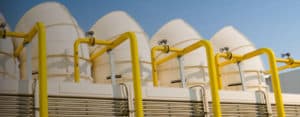
Saltworks can solve your cooling tower blowdown challenges. We can add novel sensors and controls to your cooling tower to minimize water consumption and blowdown production. We can treat blowdown for re-use at your cost-optimized freshwater recovery or achieve zero liquid discharge.
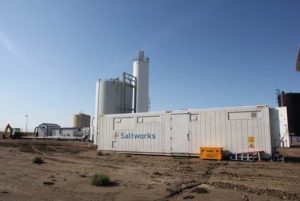
Saltworks completed two successful live oil field pilots, desalinating enhanced oil recovery (EOR) produced water, lowering polymer consumption costs and improving injection water quality, with over 97% up-time.
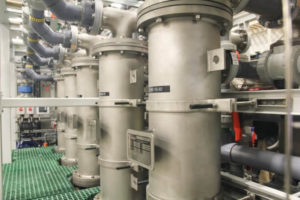
This article introduces a new type of ceramic membrane system and explains how it opens the application range. An example of treatment of oil and grease in produced water is provided.